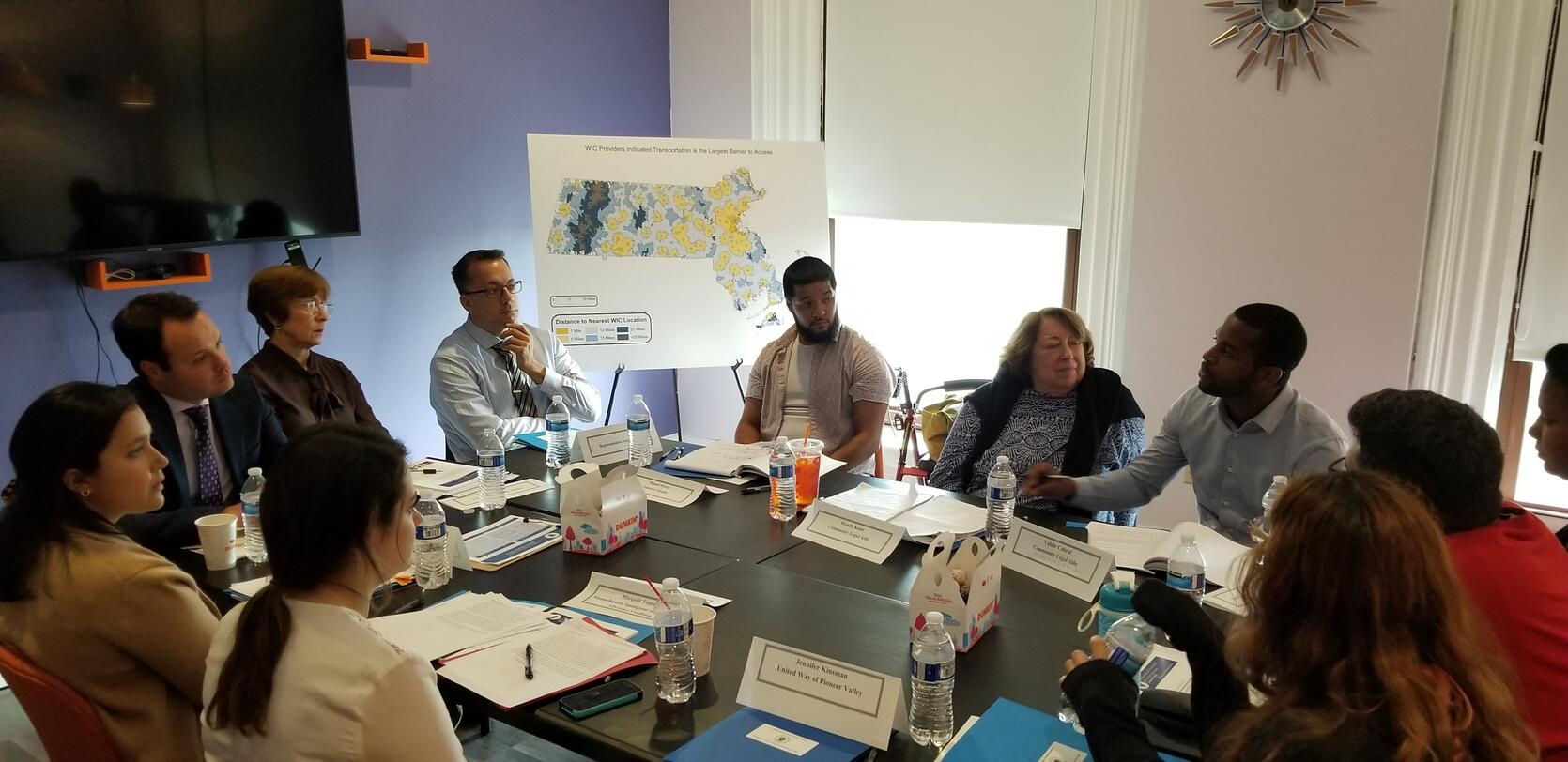- Office of the State Auditor
Media Contact
Noah Futterman

Boston — After an audit by her office showed women and families in the Commonwealth face numerous barriers to accessing benefits through the Special Supplemental Nutrition Program for Women, Infants, and Children (WIC), State Auditor Suzanne M. Bump today hosted a roundtable discussion in Holyoke to discuss her audit findings. Participating in the roundtable with Auditor Bump was State Senator Eric Lesser (Longmeadow), State Representative Aaron Vega (Holyoke), as well as leaders from the Tapestry WIC Family Nutrition Office, Massachusetts Immigrant and Refugee Advocacy Coalition, Massachusetts League of Community Health Centers, Community Legal Aid, and the Western Massachusetts Training Consortium.
The discussion, which took place at the Western Massachusetts Training Consortium, primarily focused on barriers related to transportation, outreach efforts of Department of Public Health (which administers the program), and language and immigration status issues. Participants in the WIC program and groups that work with participants spoke about the challenges they have encountered when trying to secure WIC benefits.
“Today’s conversation made clear that overcoming the barriers to access which our audit identified as transportation obstacles, data-sharing problems, and language issues, will require a two-pronged approach,” Bump said. “First, the Department of Public Health must work to enhance coverage in the western part of the state, improve its outreach to potential WIC participants, and provide information and resources in the language with which they are most comfortable. Second, we must think outside the box to develop solutions to challenges that are beyond our control. This includes increased use of mobile provider sites to make signing up for benefits easier and expanded education efforts about the Trump administration’s new public charge rule that allows federal agents to consider additional public benefits when determining an individual’s immigration status.”
“The Auditor’s findings show some of the most vulnerable people in our state cannot take part in the WIC program, because we lack the transportation infrastructure to transport them to service locations,” Senator Lesser said. “This is especially true in Western Mass., where many families live as far as 20 miles from the nearest service center with limited public transit options – if any at all. As a result, women and young children are left deserted and hungry. This is unacceptable. Investing in public transportation that serves our whole state is not a choice; it is a necessity.”
"Many people in our community who participate in or are in need of the WIC program and other public benefits find themselves overwhelmed or falling through the cracks due to confusing communications, or lack of information about how to even access the benefits in the first place," said Sera Davidow, director of the Western Massachusetts Recovery Learning Community. "Hearing today from people participating in these programs, elected officials, and other program stakeholders served to confirm the many struggles some of our area's most marginalized families face. We urge the Commonwealth to use the resources at its disposal to remove these barriers to access."
To be eligible for WIC, an applicant must be a Massachusetts resident, have a household income at or below 185 percent of the federal poverty level, and belong to one of the following categories: pregnant women, breastfeeding women, non-breastfeeding postpartum women, infants, or children up to age five. As of June 2018, there were 31 WIC providers managing 120 locations across the Commonwealth.
###